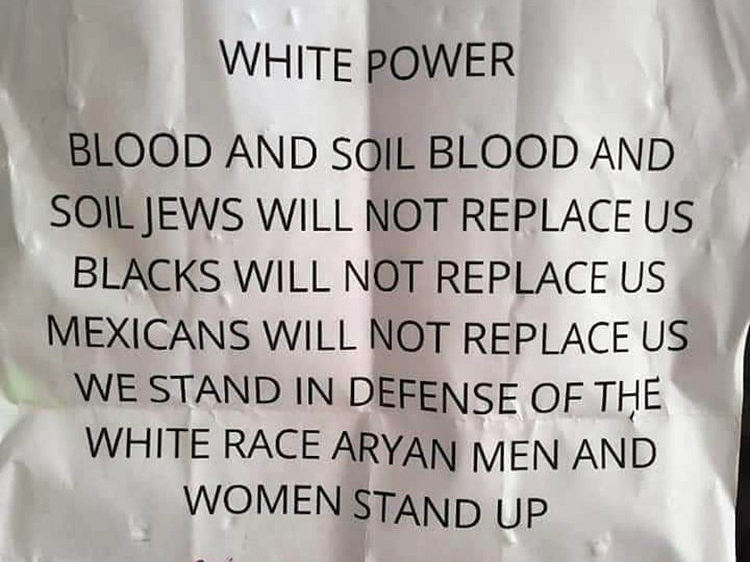Guess what?
Great news!
Anti-Semitism has been “canceled.”
It no longer exists.
Well, sort of.
At least, not in the AP world.
This past week, the AP Stylebook made an official change — to no longer use the term “anti-Semitism,” and to change it to “antisemitism.”
They have finally caught up with Microsoft Word, which long ago stopped red-lining “antisemitism.”
No one could accused AP of being avant-garde in this matter. Deborah Lipstadt’s recent book on the phenomenon made that change: “Antisemitism Here and Now.”
In May, 2020, in a speech at the US Holocaust Memorial Museum, she said: “Why do I spell antisemitism without a hyphen? Because anti-Semitism is not hatred of Semitism or Semites – people who speak Semitic languages [Hebrew, Arabic, Aramaic — JKS note]. Antisemitism is Jew hatred..”
This is why I have always preferred “Jew-hatred” to “anti-Semitism.” It is far more raw, more descriptive, and more accurate.
(By contrast, Bari Weiss’ equally excellent book on the subject, “How To Fight Anti-Semitism,” sticks to the old spelling.)
Why am I particularly happy about the “end” of “anti-Semitism?”
Because, as far as I know, it is the only example of a hater actually inventing the term for that hatred.
In 1879, the German journalist Wilhelm Marr published a pamphlet with a title that translates as “The Victory of the Jewish Spirit Over the Germanic Spirit.” He used the term Semitismus interchangeably with the term Judentum — meaning both “Jewry,” “Judaism, and “the Jewish spirit.”
Subsequently, “semitismus” became “antisemitismus” — opposition to Jews as a people. Marr then founded the Antisemiten-Liga, the league of antisemites. By 1881, the term had become the lingua franca of opposition to Jews and Judaism.
Antisemitism is the oldest hatred. It is the oldest obsession. As such, I have often preferred the term Judeo-phobia to “antisemitism” and even “Jew hatred.” It is merely this: irrational thoughts about Jews, the Jews, and Judaism.
It is the virus of history – an infection that is there, that remains dormant within the body – and given the proper conditions and given the failure of society’s immune system – always re-appears.
Antisemitism is the oldest “ism” in the world – the oldest living ideology. It is actually the one and only cultural thread that binds our civilization to that of the ancient Persians, and the ancient Greeks, and the ancient Romans, and the early Christians, and medieval Christians, and Protestantism, and Islam, and modern scientific racist theories. It is the one thing that all of those cultures have in common.
As David Nirenberg has written in his book “Anti-Judaism: The Western Tradition” — antisemitism is not merely a facet of European culture, or the Western tradition.
Antisemitism is the Western tradition — because Christianity was the major construction material of European civilization. Christianity was itself constructed on the premise of being not Judaism.
That means that in the West, Christianity is privileged.
As my RNS colleague Khyati Joshi writes in her startling new book “White Christian Privilege: The Illusion of Religious Equality in America“:
Unlike racism, gender discrimination, or homophobia, Christian privilege often flies under the radar. It is so ingrained in our societal dynamics, it continues to be taken as “normal…”
Christian normativity makes Christian values intrinsic to our national identity, conveys the status of truth and rightness on Christian culture, and makes Christian language and metaphors and their underlying theology the national standard.
Consider:
- Mentioning Jesus in an invocation at a community event that is supposed to exhibit unity.
- Blatantly ignoring major Jewish holidays in school test, sports, and graduation schedules.
- Having Jewish children (for that matter, children of any religious minority) explain “their” holidays in school.
- “What are you getting for Christmas?”
And, to be clear: it is not only Jews who experience this. It is all non-Christians.
Christian children never have to explain “their” holiday in a public school setting.
Because it is the “default” setting.
There is something fitting about this discussion. It happens simultaneously with a discussion of systemic racism in the United States.
Let me put it to you this way — in good old SAT analogy terms.
Systemic racism:the United States::antisemitism:Western tradition.
Imagine now, the conversations that could and should exist between blacks, Jews — and all cultural minorities in this country.
Imagine if we started struggling with this question: “What does it mean for us to survive and thrive as racial, cultural, and religious ‘others’ in this nation? How can our experiences enrich each other?”
That would be a great conversation.
Let’s do it.






